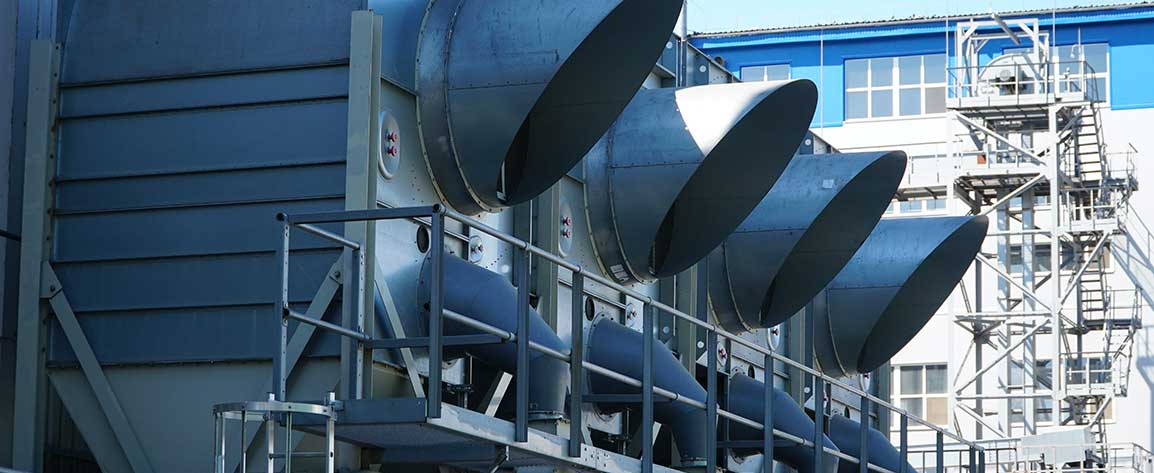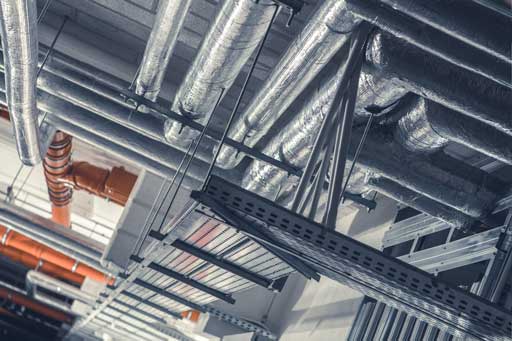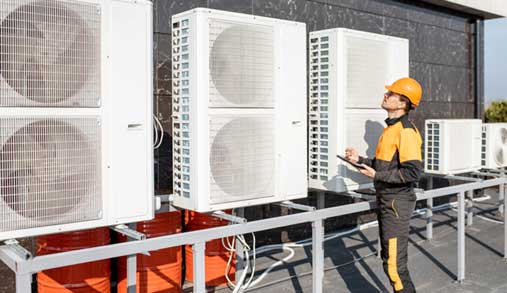Commercial HVAC Analytics
Commercial HVAC Solutions and Services in Auckland, NZ.

Do you own a business that relies on air conditioning to keep your customers comfortable? Are you concerned about the cost of maintaining and replacing your HVAC system? If so, then Commercial Air Conditioning Auckland‘s HVAC Analytics service is perfect for you. With their cutting-edge technology and expertise, they can help you maximize efficiency and reduce costs. In this article, we’ll explore how their analytics service works and the benefits it provides to businesses like yours.
HVAC systems are essential components of many commercial buildings. They provide climate control while also helping protect equipment from overuse or damage due to extreme temperatures. Unfortunately, these systems aren’t cheap to install or maintain – but with careful monitoring by professionals such as those at Commercial Air Conditioning Auckland, it’s possible to make sure they remain operational without breaking the bank.
Commercial Air Conditioning Auckland’s HVAC Analytics service helps businesses optimize their temperature control systems in order to minimize energy consumption and maximize efficiency. By utilising sophisticated algorithms and data analysis techniques, they’re able to identify areas where improvements can be made which will save money in the long run.
GET A QUICK QUOTE!
Get a FAST Response

What Is HVAC Analytics?
HVAC analytics is an invaluable tool for commercial air conditioning companies. It uses a range of data analysis techniques to analyze historical and real-time information about HVAC systems, helping companies identify areas where operational improvements can be made. With this knowledge, businesses are able to improve the performance of their HVAC systems while also reducing energy costs and increasing efficiency.
One example of how HVAC analytics works is by using predictive maintenance models that enable organizations to detect potential issues before they occur. These models use machine learning algorithms to look at past data and make predictions about future outcomes. This helps them spot trends in system performance and proactively address any issues before they become costly repairs or replacements. In addition, this type of analytics allows companies to plan preventive maintenance schedules so they can avoid unexpected breakdowns or malfunctions in the future.
By regularly monitoring key metrics such as temperature levels, humidity levels, fan speed, and pressure drops within their HVAC systems with HVAC analytics, commercial air conditioning Auckland businesses can gain valuable insights into how well their equipment is functioning and take steps to optimize it for maximum efficiency.
How Does HVAC Analytics Work?
HVAC analytics is a method of tracking and analyzing the performance and operation of HVAC systems. It enables businesses to assess system efficiency, identify potential problems before they occur, reduce energy costs, and optimize equipment operations. Let’s take a look at how it works.
For starters, data is collected from sensors placed throughout an HVAC system that measure temperature, airflow rate, pressure, humidity levels and other variables. This data is then processed using analytics software which helps identify patterns in order to:
- Monitor System Performance: Analyzing trends in temperature control can help determine if there are any anomalies or irregularities impacting overall performance.
- Detect Issues Early On: When issues arise with the system’s components like pumps or motors, this technology can detect them before they become more serious – saving money on repairs down the line.
- Optimize Efficiency: By understanding how different settings affect energy consumption, businesses can make adjustments to maximize their savings while maintaining a comfortable environment for customers or employees.
In addition to these benefits, HVAC analytics also allows companies to access real-time insights into their systems via remote monitoring solutions such as mobile apps or web dashboards. With all the advantages this technology provides, it’s easy to see why it’s becoming increasingly popular among commercial air conditioning providers in Auckland and beyond! Now let’s explore some of the various types of HVAC analytics available…
Commercial Air Conditioning Auckland’s HVAC Analytics Services
Commercial Air Conditioning Auckland is a leading provider of HVAC analytics services. They provide comprehensive solutions that can be tailored to meet the needs of any business, regardless of its size or industry. Their team has extensive experience in using data-driven insights to help businesses improve their efficiency and reduce energy costs.
The company offers a range of services including predictive maintenance, asset management, remote monitoring and reporting, as well as energy analysis. These tools enable customers to identify opportunities for operational improvements while reducing unnecessary expenditure on repairs and replacements. In addition, they have an easy-to-use interface which allows users to access vital information quickly and accurately. With Commercial Air Conditioning Auckland’s HVAC analytics platform, customers can easily monitor their systems and make informed decisions about how best to optimize them for maximum performance.
These are just some of the features that make Commercial Air Conditioning Auckland one of the most reliable providers of HVAC analytics services in New Zealand. By providing timely insights into their operations and helping to maximize efficiency, they ensure that businesses get the highest possible return from their investments in air conditioning technology.

Advantages Of Using Hvac Analytics
Using HVAC analytics can be beneficial to businesses. It provides commercial air conditioning Auckland with the opportunity to monitor their system performance, detect any issues before they become costly repairs, and improve efficiency. This helps them optimize their energy use, resulting in long-term cost savings for the business.
Another advantage of using HVAC analytics is improved customer satisfaction. By monitoring the temperature and humidity inside a building, companies can ensure that customers are comfortable while also making sure that their systems don’t malfunction or break down unexpectedly. In addition, it allows them to provide reliable service in terms of setting temperatures and managing indoor air quality levels.
TIP: Businesses should consider implementing an HVAC analytics solution as part of their regular maintenance processes in order to maximize the benefits mentioned above. Doing so will help prevent expensive repairs and keep customers happy and comfortable at all times. With these advantages in mind, businesses can take proactive steps towards improving their operations by leveraging data from HVAC analytics solutions.
Critical Elements Of Hvac Analytics
When it comes to using HVAC analytics, there are several critical elements that must be considered. These include data collection, energy management systems, predictive maintenance, system optimization and automation.
Data collection is a key component of any successful HVAC analytics project. This involves gathering information from the various components in your building’s HVAC system – such as temperature sensors, thermostats, humidity controllers, etc. – and analyzing them for trends or anomalies. Once this data has been collected and analyzed, it can then be used to make informed decisions about how best to manage the overall performance of the system.
Energy management systems are also essential for efficient use of HVAC analytics. By monitoring consumption levels within each zone of your facility and making adjustments accordingly, you can ensure maximum efficiency while reducing energy costs over time. Predictive maintenance can also help identify potential problems before they arise, allowing you to take action quickly in order to prevent costly repairs or downtime due to unexpected issues with the system.
System optimization is another important aspect when utilizing HVAC analytics; by optimizing airflows throughout all zones in the facility and ensuring optimal pressure levels across the board, you’ll achieve greater comfortability and improved airflow throughout the space – resulting in higher overall satisfaction among occupants. Finally, automation plays an integral role here too; through automated control processes like scheduling and remote access capabilities, operators will be able to save time while still maintaining maximum level of control over their entire system operations.
With these crucial elements in place, facilities will have everything they need to maximize their return on investment from implementing HVAC analytics technologies – leading them into a new era of smarter energy management practices and increased cost savings. Moving forward from here we look at some common uses of hvac analytics:
- Automated fault detection & diagnostics (FDD)
- Real-time energy usage tracking & optimization
- Demand response strategies & load shedding
- Enhanced equipment safety & reliability
- Improved indoor air quality & occupant health
By leveraging these powerful tools it’s possible for organizations to not only reduce operational expenses but also increase employee productivity thereby driving business growth and success.

Common Uses Of Hvac Analytics
HVAC analytics are becoming increasingly important for commercial air conditioning businesses. They provide invaluable insight into system performance, helping to save energy, reduce operational costs and create more efficient operations. So what common uses of HVAC analytics exist?
First off, they can be used to monitor temperature and humidity levels in a building or space over time. This data can then be analyzed to identify any areas where the conditions aren’t optimal, allowing operators to adjust their systems accordingly. Additionally, HVAC analytics can:
- Track and measure energy consumption across an entire facility or individual machines;
- Identify potential problems with equipment before they arise;
- Monitor changes in environmental factors that could affect indoor air quality;
- Automate maintenance schedules based on real-time data analysis.
This is just scratching the surface of the many applications available through HVAC analytics. By leveraging this technology, businesses can gain unprecedented access to detailed insights about their heating, ventilation and cooling systems – enabling them to make smarter decisions based on reliable information. Transforming how commercial air conditioning Auckland services operate and optimizing performance as a result.
